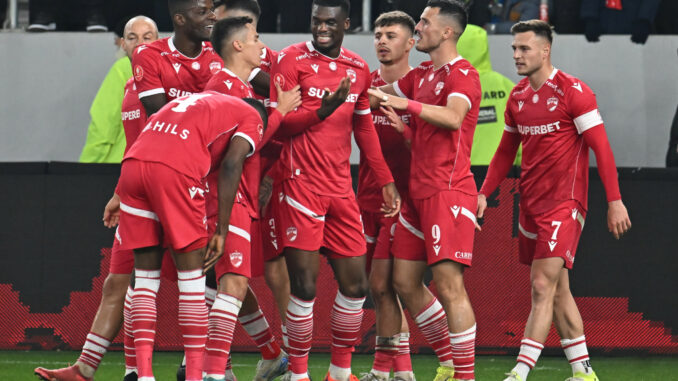
Dinamo București, clubul care a scris istorie în fotbalul românesc, refuză să trăiască doar din amintiri. După ani grei, cu emoții și lupte pentru supraviețuire, „Câinii Roșii” sunt pregătiți să muște din nou! Și cum altfel să o facă, dacă nu printr-un transfer care poate schimba radical fața echipei?
Dinamo vrea un lider adevărat!
Informațiile apărute recent arată că oficialii clubului negociază intens aducerea unui fundaș central experimentat, un jucător cu peste 200 de meciuri la nivel înalt, care a evoluat în campionate puternice din Europa. Această mutare ar reprezenta nu doar întărirea defensivei, ci și un semnal clar că Dinamo vrea să redevină o forță greu de doborât.
În ultimele sezoane, problema apărării a fost una dintre cele mai mari slăbiciuni ale echipei. Cu un lider defensiv de calibru, „Câinii” ar putea în sfârșit să construiască o bază solidă pentru un viitor de succes.
⚽ Reconstrucția continuă
Noul investitor și staff-ul tehnic au transmis un mesaj clar: Dinamo nu mai merge pe jumătăți de măsură. Obiectivul este să formeze un lot competitiv, cu mix de experiență și tineri talentați, care să aducă din nou entuziasm pe „Ștefan cel Mare”.
Un astfel de transfer ar fi doar începutul. Sursele spun că Dinamo are pe listă cel puțin încă trei jucători importanți – un mijlocaș box-to-box, un extremă rapidă și un atacant cu instinct de golgeter.
Reacția suporterilor
Peluza Cătălin Hîldan așteaptă cu sufletul la gură. Fanii dinamoviști au demonstrat în ultimii ani că sunt inima clubului, iar acum cer cu voce tare ca echipa să revină în top. Pentru suporteri, un asemenea transfer ar fi dovada că „noul Dinamo” e pe drumul cel bun.
Mesajele pe rețelele sociale sunt clare: „Vrem să vedem un Dinamo de temut!” – iar oficialii par să fi auzit strigătul fanilor.
Dinamo – un club care nu moare niciodată
Chiar dacă a trecut prin clipe dificile, Dinamo are în ADN-ul său spiritul de luptă. Cu un lider defensiv și câteva mutări inteligente, „haita” poate redeveni periculoasă. Un sezon bun ar putea readuce echipa aproape de podium și ar reaprinde visul european.
Concluzie: Dinamo București este pe cale să facă o mutare uriașă! Cu un lider defensiv de clasă, lotul capătă stabilitate, iar fanii au din nou motive să spere la un viitor strălucitor. „Câinii Roșii” sunt pregătiți să muște – și de data asta, mușcătura poate fi fatală pentru rivali!
Leave a Reply